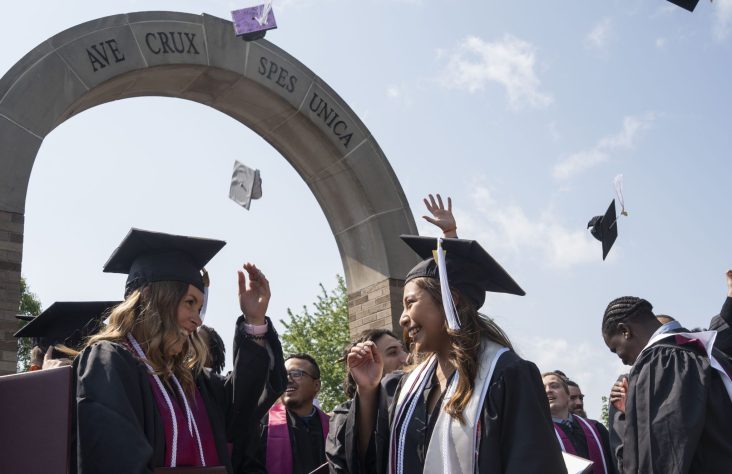March 9, 2016 // Uncategorized
Madagascar, CRS and care for God’s creation
By Melissa Wheeler
This week, CRS Rice Bowl focuses on the Catholic Social Teaching principle of Care for God’s Creation. We are called to be stewards of the natural world. We can find evidence of this in Scripture. As we read in Genesis: “God took the man and settled him in the garden of Eden to cultivate and take care of it.” (2:15). We can also find the call to care for the land by allowing it to rest in Leviticus 25:4-5 where we read: “But in the seventh year the land is to have its rest, a Sabbath for God. You must not sow your field or prune your vine, or harvest your ungathered corn or gather grapes from your untrimmed vine. It is to be a year of rest for the land.” And, we are invited to respect God by caring for nature in the New Testament. “Ever since God created the world His everlasting power and deity — however invisible — have been there for the mind to see in the things He has made.” (Romans 1:19). We can always find goodness in all of God’s creation, which calls us to glorify God in our care for His creation.
We can also find guidance in the teachings of Pope Emeritus Benedict XVI and Pope Francis. Pope Emeritus Benedict XVI emphasized a human ecology in “Caritas in Veritate.” “The way humanity treats the environment influences the way it treats itself, and vice versa. … Every violation of solidarity and civic friendship harms the environment, just as environmental deterioration in turn upsets relations in society.” (No. 51).
Pope Francis has drawn our attention to the connection between care for the environment and care for human beings. “We are called not only to respect the natural environment, but also to show respect for, and solidarity with, all the members of our human family. These two dimensions are closely related…” (papal audience, June 5, 2013).
We can see this connection in Catholic Relief Services’ (CRS) work in Madagascar.
In 2013, Cyclone Haruna made landfall in Tulear, Madagascar. Its heavy rains washed away homes and destroyed crops. One of the CRS programs that helped farmers recover after the cyclone is still in progress today. The DiNER program (Diversification and Nutrition for Enhanced Resilience) helps farmers diversify their crops and gain the tools they need to be successful. DiNER provides subsidized agricultural vouchers to farmers so they can purchase seeds, farm tools and livestock at organized agricultural fairs. DiNERs help farmers plant staple crops and encourage improved agricultural practices that build resilience to floods and drought. This program helps to protect our vulnerable environment and promotes the dignity of the growers who are able to sustain their crops and provide for their families.
This week, pray and think about how you can care for God’s creation and recognize the dignity of your neighbor. Here are some things you may try. Simple things like composting your kitchen scraps and recycling can reduce waste. Turning down your thermostat means you’ll use less energy from nonrenewable resources. By buying fair trade coffee, chocolate, clothing and home décor, you are supporting workers and the environment.
“Teach us to discover the worth of each thing, to be filled with awe and contemplation, to recognize that we are profoundly united with every creature as we journey towards your infinite light.”
— Pope Francis, “Laudato Si”
The best news. Delivered to your inbox.
Subscribe to our mailing list today.





